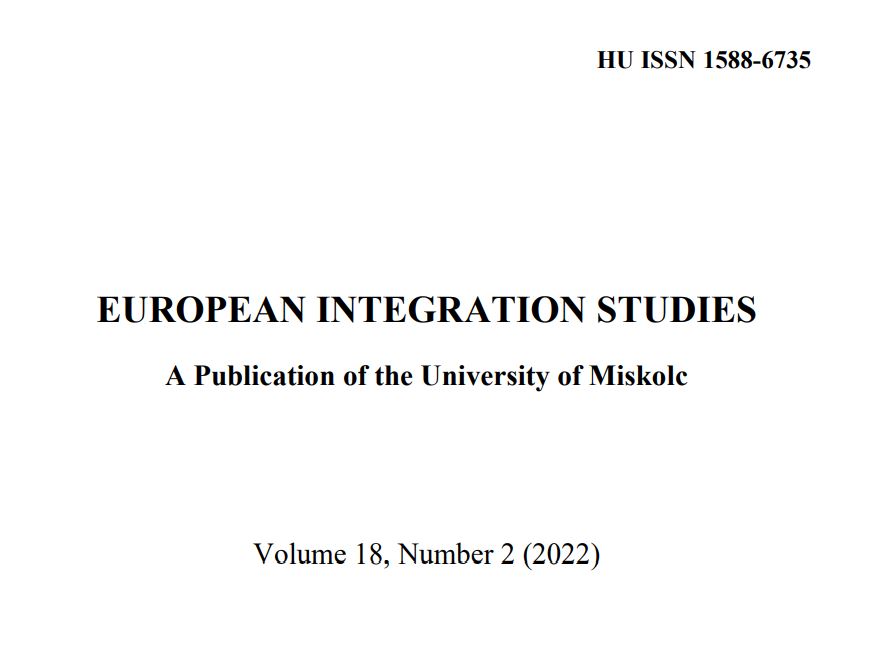Interplay between undue influence, usury, and immoral contracts in the light of the recent case law of Hungary
DOI:
https://doi.org/10.46941/2022.e2.33-41Schlagworte:
undue influence, usurious contract, unfair exploitation, contracts contrary to good morals, good faith in contract law, gift contractAbstract
In this short writing, we intended to show the recent tendency in the Hungarian judicial practice, a slight movement to rediscover the importance and the great variety of the subjective elements of usury contract, focusing on the so-called undue influence as a subjective condition of the invalidity. However, a twofold finding should be expressed here. First, the conceptual scopes of these grounds are not totally separated from each other, although, a distinction should be made, moreover, not only between the undue influence and other defects of contractual intention but also between usurious contract, immoral contract and unfair exploitation, with the observation that the latter ground of invalidity has only historical importance in Hungarian law. Second, as the former judicial practice placed too much importance on the assessment of the reciprocity condition in usury cases, in the cases of the gift contracts concluded by the party under the undue influence the court constitutes the invalidity based on immorality, not on usury.
Literaturhinweise
REFERENCES
Almási A. (1932). Uzsorás szerződés és kizsákmányoló ügylet. Jogtudományi Közlöny, Vol. 67, No. 32, pp. 181–183.
Beale, H. G. (2018). Duress and Undue Influence. In: Beale, H.G. (ed.). Chitty on Contracts. 33rd ed. London: Sweet & Maxwell, pp. 755–836.
Bigwood, R. (1996). Undue Influence: ‘Impaired Consent’ or ‘Wicked Exploi-tation’? Oxford Journal of Legal Studies, Vol. 16, No. 3, pp. 503–515.
Chen-Wishart, M. (2006). Undue Influence: Vindicating Relationships of Influence. Current Legal Problems, Vol. 59, No. 1, pp. 231–266, https://doi.org/10.1093/clp/59.1.231
Ifj. Szigeti L. (1933). Szolgáltatások értékaránya visszterhes szerződésnél. Polgári Jog, Vol. 9, No. 5, pp. 251–262.
Kiss G. – Sándor I. (2014). A szerződések érvénytelensége. 2nd ed. Budapest: HVG-Orac.
Kőnig E. (1926). A kizsákmányoló ügylet. Jogállam, Vol. 25, No. 7, pp. 381–387.
Lőw T. (1926). A szerződési akaratelhatározás jogellenes befolyásolása. Jogállam, Vol. 25, No. 3, pp. 140–149.
Menyhárd A. (2016). A magánjogi uzsora. In: Filó M. (ed.). Tanulmányok az uzsoráról. Budapest: ELTE Eötvös Kiadó, pp. 225–252.
Menyhárd A. (2004). A jó erkölcsbe ütköző szerződések. Doktori mester-munkák. Budapest: Gondolat.
Molnár H. (2006). Uzsorás szerződés a gyakorlatban. Themis, Nr. 6, 2006, pp. 39–50.
Peel, E. – Treitel, G. H. (2015). The Law of Contract. 14th ed. London: Sweet and Maxwell.
Szászy I. (1948). A magyar magánjog általános része. Vol. II. Budapest: Egyetemi Nyomda.
Szladits K. (1932). A kizsákmányoló ügyletek. Jogtudományi Közlöny, Vol. 67, No. 9, pp. 53–54.
Trócsányi J. (1909). Erkölcstelen ügyeletek (turpis causa). Budapest: Grill.
von Bar, Christian et al. (2009). Principles, Definitions and Model Rules of European Private Law. Draft Common Frame of Reference (DCFR) Outline Edition. Munich: Sellier.





